Concurrent Session 6 | May 7 | 2:45 – 4:15 PM
Session 6.1
NEPA | Updates to the National Environmental Policy Act Procedures
2:45 – 4:15 PM
| About the Presentation |
|
The Council on Environmental Quality (CEQ) has embarked on a rulemaking process to modify the NEPA procedures that apply to all major Federal actions. The goal for this effort is to implement the Fiscal Responsibility Act (FRA) amendments to NEPA, to promote better decision-making that is efficient and transparent, to ensure full and meaningful public participation, to facilitate improved environmental, climate change, and environmental justice outcomes, and to promote regulatory certainty. In this session staff from CEQ will discuss the proposed modifications to the CEQ NEPA regulations and the amendments to NEPA made by the FRA.
Objective:
- Describe the recent changes to the NEPA process from the NEPA regulations and the Fiscal Responsibility Act.
|
| About the Speaker |
|
 Amy Coyle Amy Coyle
Deputy General Counsel
Council on Environmental Quality
Amy B. Coyle is the Deputy General Counsel for the White House Council on Environmental Quality (CEQ), which oversees the implementation of the National Environmental Policy Act (NEPA) and advises the President on a variety of environmental policy matters. Previously, Amy served as a senior attorney at the U.S. Department of Transportation where she led the environmental practice in the Office of the Secretary’s Office of the General Counsel. In addition to advising the Department on NEPA implementation and other environmental law matters, she provided counsel on Tribal law issues, including the establishment DOT’s Tribal self-governance program through negotiated rulemaking. Amy joined the Department in 2008 through the Honors Attorney Program following her clerkship with the State of Connecticut Superior Court. Amy received her law degree from the University of Connecticut School of Law.
|
Back to Top
Session 6.2
Climate Change | AEP Climate Change Committee on Climate Modeling in Habitat Planning
2:45 – 4:15 PM
| About the Presentation |
|
AEP Climate Change Committee Recommendations on using Climate Change Modeling Data in the Development of Habitat Restoration/Conservation and Endangered Species Recovery Planning. Climate Change is altering key habitat elements that are critical to the survival of wildlife causing migration and/or extinction. This panel discussion will provide examples of habitat planning using climate change modeling to predict the type of habitat and wildlife the future habitat will support. This discussion includes a step-by-step description of how to downscale Global Climate Change Models to local and regional levels of detail, use the modeled predictions (temperature, precipitation amount and types, wildfire risks, draught) in determining the types of habitats that specific sites or regions will support in the future, and the potential for wildlife migration. This information is then used in the habitat restoration planning process to predict suitable sites/areas of specific habitat suitable to sustain endangered species and ensure a healthy habitat in the future. The panel will be comprised of the AEP Climate Change Committee, climate Resiliency specialists, and wildlife biologists.
Objectives:
- Inform the audience of how climate change is affecting wildlife habitat
- Provide recommendations on including climate change modeling predictions to use in habitat restoration/conservation planning and endangered species recovery planning processes
|
| About the Speakers |
|
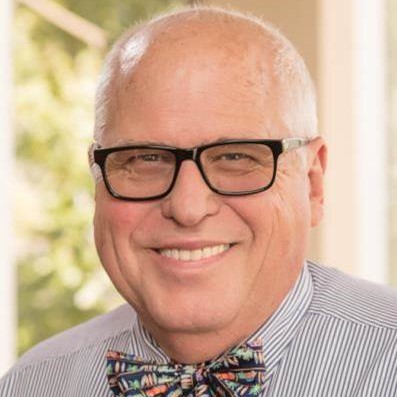 Michael Hendrix Michael Hendrix
Michael Hendrix Consulting
Michael Hendrix has been on the Climate Change Committee since its inception in 2007. Michael has over 27 years of experience in GHG emissions, CEQA/NEPA, and climate change analysis. In the Spring of 2022, he formed his own consulting firm focused on climate change and climate action planning.
|
|
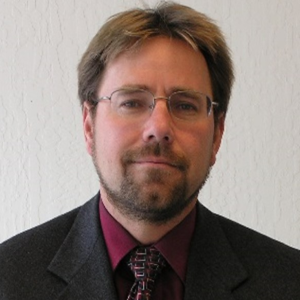 Rich Walter Rich Walter
Vice President
ICF
Rich Walter has been on the Climate Change Committee since its inception in 2007. Rich has over 30 years of experience in environmental planning, compliance strategies, permitting, and mitigation development and mitigation. Rich is Vice President at ICF and has led ICF's California Municipal Climate Action Planning Practice since 2006.
|
Back to Top
Session 6.3
Cultural Resources | Environmental Justice and Cultural Resources Management
2:45 – 4:15 PM
| About the Presentation |
|
Nearly three decades after the issuance of Executive Order 12898 of February 11, 1994 (Federal Actions to Address Environmental Justice in Minority Populations and Low-Income Populations), President Joe Biden promulgated Executive Order 14096 (Revitalizing Our Nation’s Commitment to Environmental Justice for All) on April 21, 2023. Biden proclaimed in his order that the “Federal Government must build upon and strengthen its commitment to deliver environmental justice to all communities across America” and reiterated that each federal agency needed to “make achieving environmental justice part of its mission.” While it’s still too early to evaluate whether EO 14096 has spurred any meaningful changes (e.g., agencies’ environmental strategic justice plans are not due until October 2024), this panel will consider how federal agencies and the environmental professionals and cultural resources practitioners who assist them in conducting environmental reviews (under NEPA and NHPA) have been working to incorporate into their plans the spirit and directives of Biden’s order. Cultural resources professionals (archaeologists, architectural historians, and historians) have a unique perspective on the legacy of environmental injustices (among others) and how they have shaped current urban, rural, and Tribal landscapes. Panelists will explore how cultural resources professionals can meaningfully assist environmental professionals describe and address environmental injustices in EAs and EISs and other types of environmental review. Topics may include daylighting and remediating historic contamination in traditionally marginalized urban, rural, or Tribal communities; using the environmental review or mitigation process to generate geospatial information that can augment the Climate and Economic Justice Screening Tool; promoting historic preservation tax credits, low-cost loan programs, and direct grants in order to foster underserved communities’ ability to purchase, rehabilitate, and maintain historic properties and thus stave off gentrification and displacement while allowing residents of underserved communities to build wealth and rebuild the fabric of their communities; and creating programs that foster environmental and cultural resources management education and awareness among underserved people so they may better advocate for themselves and their communities from within and become the environmental and cultural professionals of the future.
|
| About the Moderator |
|
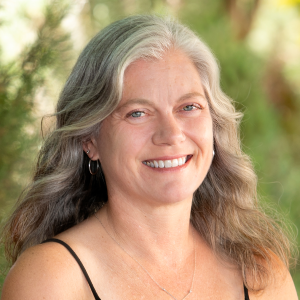 Heather Lee Miller, PhD Heather Lee Miller, PhD
Principal Historian
Historical Research Associates, Inc.
Dr. Heather Lee Miller joined HRA in 2005 and works in both HRA’s History and CRM divisions. On the history side of the house, Heather has worked on complex research and writing projects pertaining to federal, state, and local environmental and tribal litigation. On the CRM side of the house, Heather works on projects related to cultural resources management, Section 106/110 and NEPA/SEPA compliance, the development of historic contexts, inventory and evaluation, and mitigation reports. From 2007–2015, she served as the lead of HRA’s aboveground history program (a subsection of HRA’s Cultural Resource Management division) before returning to focus more closely on litigation support projects, specifically regarding chlorinated solvents, PFAS, PAHs, PCBs, hexavalent chromium, and 1,4 dioxane, to name a few. An effective project manager with a strong grasp on cultural resources compliance and history as well as an eye for detail, Heather also has exemplary research, writing, and editorial skills, having worked for over two decades in scholarly journal and book editing. She has served as HRA’s marketing director since 2014 and became Vice President of Business Development in 2018.
|
| About the Speaker(s) |
|
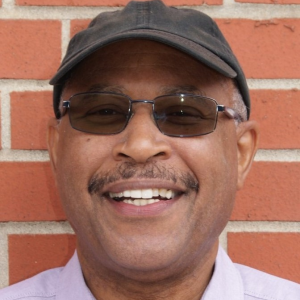 Kevin Donald, PhD Kevin Donald, PhD
Archaeologist
Historical Research Associates, Inc.
Kevin is an Archaeologist and Project Manager for Historical Research Associates, Inc. (HRA), a progressive and women-owned CRM firm. Previously, Kevin was Tribal Archaeologist for the Confederated Tribes of the Colville Reservation. He received his doctorate in anthropology from the University of Oregon in 2000. His interest in museology is reflected in his previous appointments at the Bishop Museum and the Smithsonian Institution. Kevin served as an archaeologist for the USFS on the Gifford-Pinchot, Fremont-Winema, Ochoco, and Deschutes National Forests. Between 2008 and 2012, he developed and directed the North Carolina SHPO’s Cemetery Survey and Stewardship Program. In 2013 Kevin was selected as the University of Arizona’s University Indian Ruins Residential Scholar. He is a member of the Register of Professional Archaeologists and has conducted archaeological and anthropological fieldwork in Polynesia and the American Southeast, Southwest, and Pacific Northwest. Kevin has held academic positions at Lewis and Clark College, University of Arizona, North Carolina State University, and most recently, Duke University. He has written technical reports, book reviews, and articles for Transforming Anthropology, the North Carolina Historical Review, International Journal of Humanities and Peace, and the NC Archaeological Society, where he served on the executive board for five years. Outside his professional life, Kevin enjoys outdoor activities, especially hiking.
|
|
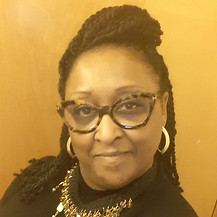 Monette Hearn Monette Hearn
Black History Sites Survey Coordinator
Washington State Department of Archaeology and Historic Preservation
Monette Hearn is currently the Black Historic Survey Coordinator for the Washington State Department of Archaeology and Historic Preservation (DAHP; home of the Washington State Historic Preservation Office, SHPO), where she directs the Washington State Black Historic Sites Survey Project (BHSS). The project entails traveling throughout the state to document historic individuals and notable sites that are significant to Black and African American history in Washington State. Monette has nearly twenty-five years’ experience specializing in local and African American history; and is a graduate of Antioch University. Recently, as the BHSS coordinator, Monette has been interfacing with Black and Brown communities, offering them a seat at the table to build a knowledge-based community that will empower people to collaborate and document their cultural heritage and historic preservation through free events. Monette is passionate about her work and has formulated what has often been referred to as “Monette’s Methodology”—boots-on-the-ground engagement and pedagogy. As part of the Stakeholders Advisory Committee, she recently created and hosted the Black History Preservation: Call & Response session on “What Is Historic Preservation?” the first of a planned series of events to be held at the Tacoma Evergreen State College (a four-year college serving predominantly Black students and founded by Dr. Maxine Mimms in 1972).
|
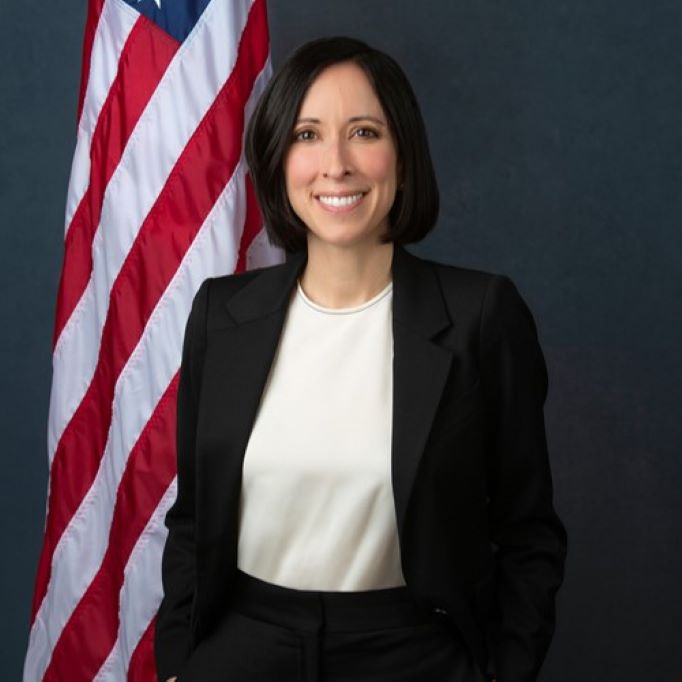
Sara Bronin
Chair of the Advisory Council on Historic Preservation
United States Senate
Sara C. Bronin was confirmed by unanimous consent by the United States Senate in December 2022 to serve as the 12th chair of the Advisory Council on Historic Preservation. A Mexican American, she is the first person of color to serve in this position.
Prior to her confirmation, Chair Bronin spent her career as a professor and public servant. Her interdisciplinary research in the areas of property, land use, historic preservation, and energy has focused on how law and policy can foster more equitable, sustainable, well-designed, and connected places. She has published five books and treatises and dozens of articles, book chapters, and shorter works on these topics. She also founded the National Zoning Atlas, which aims to translate and standardize information about how zoning regulates housing in around 30,000 jurisdictions nationally.
|
Session 6.4
Cultural Resources | Tribal Partnerships and How to Advance Meaningful Engagement
2:45 – 4:15 PM
| About the Presentation |
|
Now more than ever, project proponents are realizing the necessity and importance of engaging with tribes as part of their project planning process. However, there remains a disconnect between expectations that project proponents have regarding project timelines, when and how to engage with tribes, what true engagement is, forming meaningful relationships, and working with tribal members and tribal contractors. In this session, we will address each of these factors through a panel discussion with different perspectives, including a cultural resources management consultant, an industry-based tribal engagement specialist, the Lower Sioux Community Tribal Historic Preservation Officer (THPO), and a tribal cultural resource monitor and member of the Upper Sioux Community.
Goals of this discussion:
- Increase understanding and provide insight into how project teams can better work with tribes
- Learn how we can successfully complete meaningful tribal consultation within a project proponent’s schedule
- Learn how to manage expectations and how development projects can better support tribes and tribal businesses.
|
| About the Moderator |
|
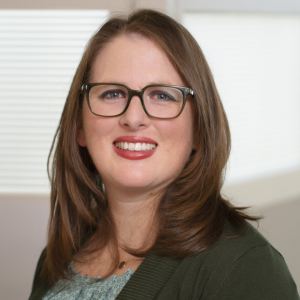 Shanna Braun Shanna Braun
Vice President/Senior Environmental ScientistBarr
Engineering Co.
Shanna has 18 years of environmental consulting experience, with a specific focus on environmental review requirements under federal and state-equivalent processes. She assists with environmental impact assessments and facilitates the environmental approval process for projects related to natural resources, energy transmission, flood management, municipal services, alternative energy, mining, transportation, and telecommunications. She is specialized in navigating the National Environmental Policy Act (NEPA) process for numerous federal agencies. Shanna’s work focuses on the Midwest, where she leads multidisciplinary teams on EIS and EA projects.
|
| About the Speaker(s) |
|
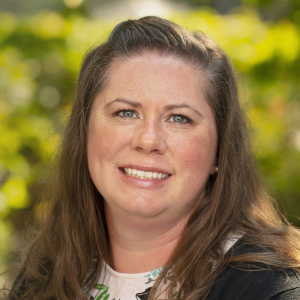 Veronica Parsell Veronica Parsell
Senior Cultural Resource Specialist
Barr Engineering Co.
Veronica is an archaeologist with 16 years of experience in cultural resources management, including Section 106 of the National Historic Preservation Act (NHPA), related state and federal cultural resource laws and regulations, and agency and consulting party coordination. Throughout her career, Veronica has directed projects involving large tracts of public and private land as well as linear corridor projects throughout the Midwest and Upper Midwest. Veronica enjoys educating clients and colleagues about how cultural resources fit within the larger project picture, including project timelines, the National Environmental Policy Act (NEPA), and regulatory triggers for Section 106 of the NHPA.
|
|
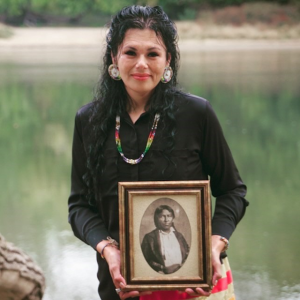 Cheyanne St. John Cheyanne St. John
Tribal Historic Preservation Officer (THPO)
Lower Sioux Indian Community
Cheyanne St. John, Mdewakanton Dakota and Mille Lacs Anishinaabe, is an enrolled citizen of Lower Sioux Indian Community. Between 2003 and 2006, she attended the University of New Mexico in Albuquerque and participated in the museum studies program at Santa Fe’s Institute of American Indian Arts. In 2022, Cheyanne graduated from the Mankato State University Anthropology program. In 2014, she began to manage the Lower Sioux Agency Historic Site in Morton, MN. Cheyanne began serving as the tribal historic preservation officer (THPO) for Lower Sioux Indian Community in 2016. In this role, she has assisted in strengthening tribal-state and tribal-agency relations. Cheyanne also serves as an advocate for Dakota language revitalization, expansion of Dakota history narratives, and cultural-education exchange.
|
|
 Patrick Hughley Patrick Hughley
Owner/Partner
Indigenous Business Advisors
Patrick works on Tribal, community engagement, and strategic initiatives in Minnesota and the Upper Midwest. His focus over the last several years has been engagement and relationship accountability on behalf of Enbridge Energy with Tribal Governments and communities in Minnesota. Patrick joined Indigenous Business Advisors in June 2023. Patrick has worked in the Energy industry for the last 12 years in community engagement as well as business development roles. Patrick grew up in Duluth, MN and is grateful to be working, living and raising his young family in the rich cultural history of Northern Minnesota.
|
|
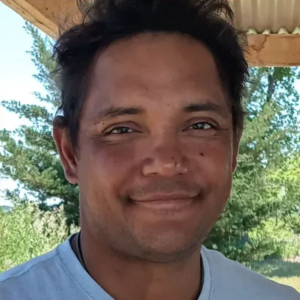 Drew Brockman Drew Brockman
Traditional Cultural Specialist/Tribal Historic Preservation Monitor
Upper Sioux Community
Drew Brockman or Hinazin Duta (Comes to a Stand on Sacred Ground) is from Pezihutazizi K’api Makoce (The Place Where They Dig for Yellow Medicine), or the Upper Sioux Reservation. Drew is an Army Airborne veteran, serving for eight years in the military, two and a half of those years in Iraq. Since returning to Upper Sioux, Drew has worked for the Tribal Historic Preservation Office conducting Traditional Cultural Property (TCP) surveys and monitoring and serving as the THPO assistant. Drew is raising four children with his wife in Granite Falls, Minnesota. He enjoys everything to do with the outdoors, especially exploring the Oceti Sakowin homeland.
|
Back to Top
Back to Schedule
|